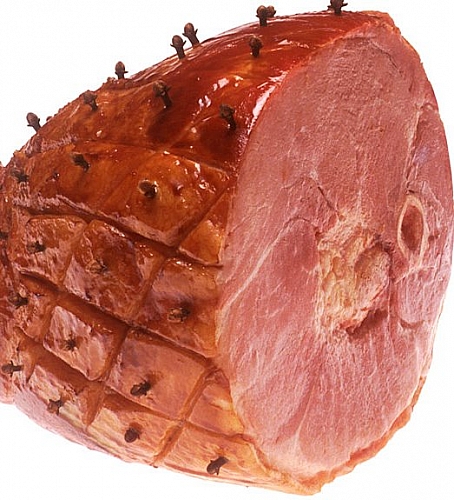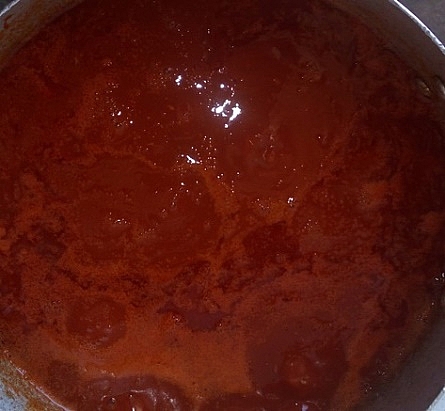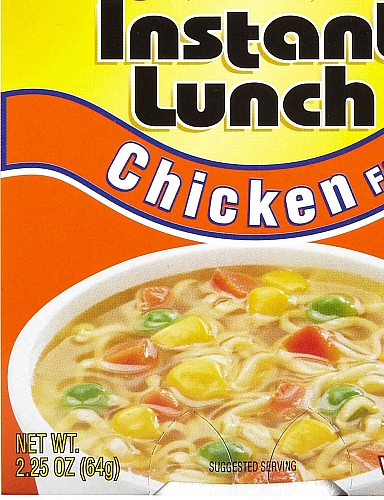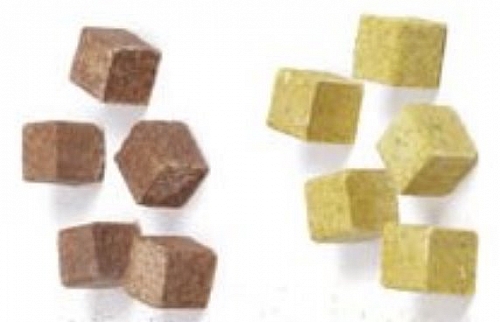Salting is one of the oldest methods of food preservation, it removes water from food and then prevents bacteria from destroying the. Salt keeps food dry and makes it uneasy for bacteria to act. However, salt is a common item in our kitchen, we often use it on a daily basis to add taste to foods, it is a very remarkable item and the only rock we eat as food. Salt is commonly called table salt or common salt, and it is composed of sodium chloride (NaCl). Salt is best described as a mineral and not a spice nor a herb, because spices and herbs can easily lose their taste over time and they are gotten from plants, but salt wont lose it taste or flavour over time as herbs and spices. Salt is a very cheap commodity and it doesnt belong to any brand or made from any special ingredients, it is natural as it is and has a special function that other seasonings, flavouring agents and spices dont. Even though salt is needed in every food to make it tasty, it can be abused when it is used in excess quantity and can in turn cause harm to humans, therefore, salt should be used minimally, season to taste in foods or should be added while the food has already been set on the table. Too much salt is dangerous to human health and the negative symptoms are obvious on people that consume a lot of salt.
Table of Contents
What are salty foods?
Salty foods are foods that have excess salt in them; this is added in foods in form of table salt or as sodium. Most foods that are not salty still contain salt in form of baking soda, sodium bicarbonate, mono sodium glutamate, sodium saccharin, sodium nitrate and sodium benzoate and these salty foods are sometimes prepared at home with unknown ingredients. The higher amount of salt we eat are gotten from processed foods; highly processed foods contains more sodium in them compare to the minimally processed foods. The salt is usually added to preserve food for a longer time (that is to keep food from spoiling) and also to add taste or enhance the flavour of other ingredients and to serves as a stabilizer in foods.
These salty foods are dangerous to the body as they can lead to heart failure enlarge muscle, heart stroke, high blood pressure, osteoporosis, stomach cancer and some other health related problems. There are naturally salty foods; naturally salty foods are foods that contain natural form of salt in them even if salt is not added to them; however, the salt amount are insignificant when compared to the ones that it has been added for preservation and to enhance taste; such foods include- sea foods-(crayfish, prawns, crabs, oyster and fish), meat( goat, beef, poultry, ham meat, egg, milk and wild meat) and vegetables (potatoes, celery, beetroot, spinach, carrots, collards, turnips, seaweeds, wax gourd) and fruit wines.
Foods high in salt
Most salty foods include: Processed cheese, savoury foods, salad dressings, pasta meals, cured meats, instant soups, bacon, sausage, roasted nuts, pickles, sandwiches, bread rolls, buns, ketchups, pizza, burger, spaghetti sauces, gravies, bouillon cubes, relish, soy sauce,snacks, beer, chips and most canned foods.
Pictures of foods that are high in salt include:
1. Processed meats- these meats are usually preserved with salt, colouring agent and flavouring.
2. Pasta sauce even though they taste good, they contain a lot ofsodium in them.
3. Instant soup-This is one of the quickest meal for anytime of the day, andit is high in sodium;if you are to prepare this, reduce the saltiness by mixing it with other foods.
4. Boullion cubes- Theseareused as every day seasoning, theycontain a lot of salt; limit the Quantity you add to your foods.
5. Chips- chips are easy snacks,you can make some at home without or with little salt.
Craving for salty foods
Salty foods are easily tempting since they are made to taste convenient in the mouth and somehow sweeter than the natural ones , these foods have a way of deceiving our taste buds, and since our taste buds are already used to the false taste in all of these foods, it makes us crave for them the more. However, there many reasons why people crave for salty foods, most people crave for salty foods because they have a decrease of sodium in the body, as a result of adrenal disorder (Adrenal cortex Diseases and Addisons disease), electrolyte imbalance and for other health related reasons. Some other reasons are as a result of mild dehydration due to sweating, purging loss of water in the body through exercise and other people crave for salt after they have stop consuming salt for sometimes for any reason and since the body is already used to eating salt, the person may still see himself coming back to salty foods. What happens when you eat too much salt is it puts your health a great risk. Too much salt has a lot of symptoms on the body and the symptoms are always negative such include: heart failure enlarge, muscle heart, stroke, high blood pressure, kidney stone, osteoporosis, stomach cancer, frequent urination, mouth sore, head ache, bloating, heart burn, poor taste bud andburned tongue or mouth. Salt is needed by pregnant women more than any other person; high amount and insufficient amount of salt can affect pregnancy; pregnant women should balance the amount of salt intake to avoid- swelling of legs, hands and faces which usually occur when there is retention of liquid in the body. Reduction of salt during pregnancy can in turn lead to altered fluid imbalance which affects the health of the mother and baby; however it is advisable to seek some medical advice from a doctor on the type of food and amount of salt to eat during pregnancy
How to fix salty foods (ways of cutting down on salt intake)
- Since many foods already contain salt in them, it then wise to cut down on the amount of salt intake on a daily basis, and this can only be possible by you, you can reduce the amount of salt you add to your daily recipes since some vegetables used as ingredients in foods like salad recipes and soup recipes are naturally tasty with natural spices, they may not need salt at all. Other foods that have healthy salt in them and if at all should be seasoned with salt, should be done minimally include: sauces, stew, rice, mayonnaise meat, fish, sandwiches, pizzas, beans, and many others. Eat whole grain foods, Store bought breads and snacks are really tasty but homemade whole grain and snacks are the healthiest as you have the knowledge of what goes into the food.
- Snacks like sandwich, burger and pizza required few ingredients; these can be prepared at home using limited salt, fresh vegies and chicken.
- Instant noodles are really great fast foods for anyone who is rushing to catch up with work, but the seasoning is loaded mono sodium glutamate, if you are to eat this, you can add half of the seasoning and use a lot of vegetables to prepare it to cut down on the high sodium content which is 750-950mg, to a smaller amount of about 300mg.
- Your food processor can save you the stress of buying store bought mayonnaise which is loaded with much sodium, simply make this at home in no time and remember you need just a pinch of salt in it. See how to make homemade mayonnaise.
- Grilled fish, chicken and beef also contain a lot of salt too, try making yours and add less of salt and more natural spices.
- Homemade tortilla breads should be used in place of store bought ones, roast your nut at home or you can buy unsalted nuts from the store if you cant roast them yourself.
- Make use of natural ingredients like ripened tomatoes and red bell peppers to make pasta sauce and ketchup instead buying processed ones that contain more sodium in them. You can season with thyme, onions, garlic oregano and also add a very little amount of salt by yourself if at all you are adding that.
- If you have to buy processed foods, check for ones that are labelled low sodium or the less processed products.
- You can dilute most of your favourite processed products with water or milk before using them directly or in other foods. Sometimes, the food we cook at home can become salty as they sit, you dilute such foods by increasing the original raw or unsalted ingredients that was used to prepare them, more vegetables can be chopped into foods to reduce the saltiness, coconut milk can be used to diluted foods, and unsalted meat broth can also be used to fix salty foods.
Recommended salt intake on a daily basis
The bottom line is Salt is good and we need a recommended amount in our everyday meals, you should learn to minimise the quantity in which you add to each meal as World Health Organisation advise that adults should consume salt less than 2,300mg per day, while the American Heart Association also suggest that 1,500mg should be eaten per day, it is even recommended by concerned individuals to consume only 1,200mg (3g) of salt per day, since excess salt could lead to cardiovascular diseases and other health related problems. You can consume natural foods (vegetables, cereals, grains, fruits and un-processed dairy products and homemade foods to cut down on salt intake.





